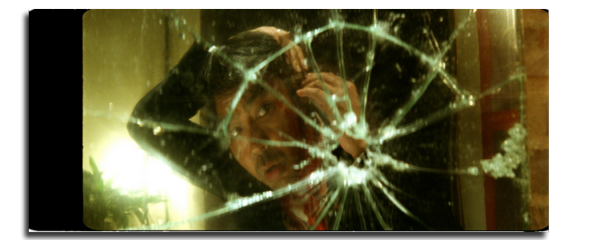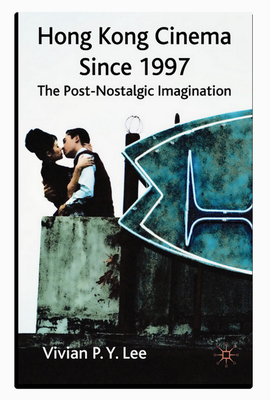 |
Statistics :
11630 Movies
19215 People
1448 Studios
29 Articles
73 Interviews
12 DVD Reviews
32452 Screenshots
3722 Videos
|
|
 |
 |
Addendum: The HK perspective |
2/6 - Page 16 |
 |
 |
 |
 |
 |
|

|
“ To's films can be very impressionistic, especially when he wants to raise a philosophical or religious question but refrains from explaining too much. ” |
| |
Vivian P.Y. Lee teaches in the Department of Chinese, Translation and Linguistics at the City University of Hong Kong. Her publications on modern Chinese literature and Chinese cinemas have appeared in academic journals and anthologies including Modern Chinese Literature and Culture, Journal of Chinese Cinemas, Scope and Chinese Films in Focus II. Lee is also the author of Hong Kong Cinema Since 1997, The Post-Nostalgic Imagination (Houndsmills: Palgrave Macmillan, 2009).
(Special thanks to Gina Marchetti)
Q&A conducted by Thomas Podvin (by email), 16/03/2011
|
| |
A Hong Kong academic
|
 HKCinemagic: Is there a consensus among the Hong Kong-based film critics and academics about what constitutes Johnnie To's best films? Which one do you prefer? HKCinemagic: Is there a consensus among the Hong Kong-based film critics and academics about what constitutes Johnnie To's best films? Which one do you prefer?
|
| Vivian P.Y. Lee: My impression is that in HK To's reputation as a master of ‘action' films began to take shape with The Mission (1999), and was further consolidated with the critical success of PTU, both films winning him the Best Director Award at the Hong Kong Film Awards (HKFA) in 2000 and 2004. His earlier films such as The Longest Nite and Running Out of Time were milestones of To's Milkyway Image productions, but in my opinion from The Mission onwards To's confidence in his personal style became increasingly visible.
I do not see the same extent of polarized opinions on the three films mentioned by Jost [in her essay] (Running on Karma, Throw Down, and Mad Detective). It occurs to me that these three films were quite well-received in Hong Kong, though not all of them have attained the same level of critical acclaim as PTU and The Mission. Throw Down, for instance, received only one nomination for best action choreography at the HKFA in 2004, but it was also the ‘Film of Merit' at the Hong Kong Film Critics Society Awards in 2005. I think in general Stephen Teo's assessment of Johnnie To as an ‘uneven auteur' is shared by many local critics, although the exact contours of this ‘unevenness' are also a matter of individual taste and preferences.
My favourite To films (so far) are PTU and Mad Detective.

Lau Ching-wan in Mad Detective, © Milkyway Image (HK) Ltd., One Hundred Years of Film Company |
| |
 HKCinemagic: Is it possible to discuss Johnnie To's films with the notions/theories developed and used by Western academics? For instance, Andrew Grossman in his 2001 article for Sense of Cinema, “The Belated Auterism of Johnnie To,” has a hard time fitting To's oeuvre into the framework of either auteur theory or genre theory. Do Hong Kong-based academics use these auteur and genre film theories to define To cinema? Are there some specific theories Chinese academics have developed to discuss Chinese films in general and which are applied to Johnnie To work? HKCinemagic: Is it possible to discuss Johnnie To's films with the notions/theories developed and used by Western academics? For instance, Andrew Grossman in his 2001 article for Sense of Cinema, “The Belated Auterism of Johnnie To,” has a hard time fitting To's oeuvre into the framework of either auteur theory or genre theory. Do Hong Kong-based academics use these auteur and genre film theories to define To cinema? Are there some specific theories Chinese academics have developed to discuss Chinese films in general and which are applied to Johnnie To work? |
| Vivian P.Y. Lee: The most readable and broadly circulated work that engages with To's auteurism and genre theory would be Stephen Teo's book, Director in Action: Johnnie To and the Hong Kong Action Film (HKU Press, 2007). Other studies by Chinese academics on To's films may draw upon genre theory but most tend to explore To's cinematic language and visual style within the framework of the Hong Kong action film tradition, for instance, the image of the hero/gangster, brotherhood, the (postmodern) cityscape, fatalism, violence, and political allegory. Michael Ingham's book on PTU (HKU Press, 2009), for instance, explores the philosophical and moral complexity of the film, paying close attention to its narrative and aesthetics. So far I am not aware of any specific ‘theories' developed by Chinese academics that are applied to To's work, probably due to his ‘unevenness', except that To's major films do draw attention to his affiliation to film noir. On the other hand, Western critics seem to be less interested in To's lighter side, that is, romantic comedies and melodrama where women are given a more prominent role (e.g. Needing You [2000], Love on a Diet [2001]), which have drawn more attention from Chinese or Hong Kong-based academics. |
| |
 HKCinemagic: Is Johnnie To's body of work, which is rich and very diverse, as puzzling to analyze for Hong Kong-based academics as it is for Westerners? HKCinemagic: Is Johnnie To's body of work, which is rich and very diverse, as puzzling to analyze for Hong Kong-based academics as it is for Westerners? |
| Vivian P.Y. Lee: Not necessarily—at least for most people in HK, To's better known films are popular because people (critics and the general audience alike) find them ‘entertaining' in the first place, however you understand the word. HK action films invest more on visual immediacy than narrative clarity and unity; sometimes complexity is suggested but not satisfactorily explained. A film may also assume too much local knowledge to be immediately comprehensible by a Western critic. Some things are always lost in translation—even if we look at the most basic level of dialogue and subtitling. Perhaps this explains why local critics/academics sometimes are more able to absolve flaws that may appear appalling or puzzling to Western critics. Your question raises an important question about cross-cultural reception that might shed light on the different intellectual paradigms that inform critical studies on To, and others. |
| |
 HKCinemagic: As a Hong Kong-based film scholar, can you give us a few tips to appreciate To films better? HKCinemagic: As a Hong Kong-based film scholar, can you give us a few tips to appreciate To films better? |
| Vivian P.Y. Lee: To's narrative can be over-economical and some of his films try to balance philosophical content (such as karma, fate, and chance) with commercial elements, and this can result in inconsistencies and ‘puzzles' in the films. To's films can be very impressionistic, too, especially when he wants to raise a philosophical or religious question but refrains from explaining too much. I think—personally (and not necessarily academically!)—one can see To's films, especially those mentioned above, as experiments and explorations into different possibilities of making ‘Hong Kong (action) films', for his films do make a difference to the visual style and interpretation of recurrent generic subject matter (brotherhood, heroism, masculinity, violence) that have come to represent the genre to both the local and international critical community.

Hong Kong Cinema Since 1997, The Post-Nostalgic Imagination by Vivian P.Y. Lee (Houndsmills: Palgrave Macmillan, 2009 |
|
|
| |
 |
|
|
Page :
1
2
3
4
5
6
7
8
9
10
11
12
13
14
15
16
17
18
19
20
Top
|
|
|
|
|
|
|
 |
